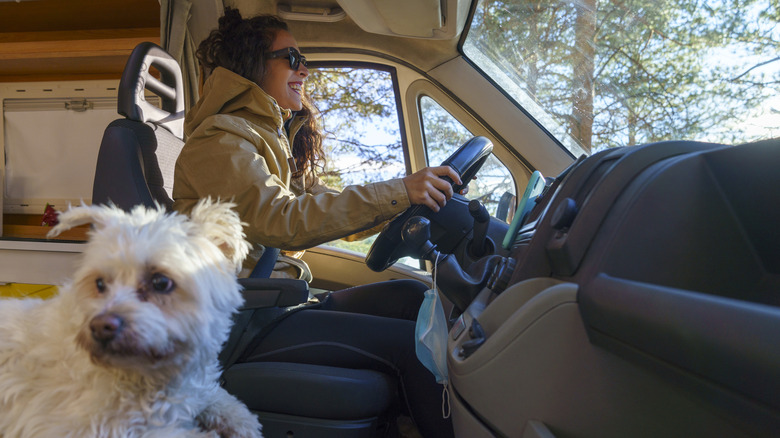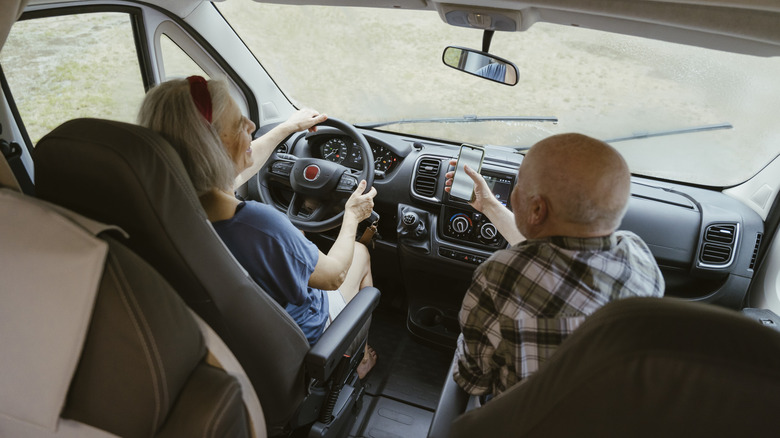
If you're considering adding a small home with wheels to your vehicle lineup, you may also be curious about the licensing requirements for operating such a vehicle. For example, you may wonder whether you need a commercial driver's license (CDL). Most people know that you need a CDL to drive large trucks like semis and other commercial vehicles, but do you need one to drive an RV?
Well, the simple answer is no. In the U.S., a standard driver's license (or, Class C license) authorizes you to drive vehicles weighing less than 26,000 pounds for personal use. Most standard RVs come with gross vehicle weight ratings (GWVRs) well below 26,000 pounds, making them legal to operate with a standard driver's license in the U.S. — no CDL required.
However, not all RVs weigh less than 26,00 pounds. Furthermore, if you want to drive a motor home outside of the States, different regulations may apply. For example, European laws impose a 4.5-Metric ton (a little more than 9,900 pounds) weight limit for standard, Class B licenses. Because of that, it's vital that you know how much your RV weighs and understand the local laws in your area. Here's how to make sure everything's in order.
 Javier Zayas Photography/Getty Images
Javier Zayas Photography/Getty Images
RV types are divided into three classes (A, B, and C), and the primary determinants for the kind of license you'll need for your RV are its weight and chassis. If your RV weighs over 26,000 pounds or exceeds 45 feet in length, you may need a special license, but not necessarily a CDL — if you're operating the vehicle for personal use only, you'll likely need a special non-commercial driver's license or a driver's license endorsement, depending on your state's laws.
Out of the three RV classes, class A motor homes are the most likely to surpass the 26,000-pound or 45-foot limits, as they are often built on bus chassis. On the other hand, Class C vehicles are usually built on truck chassis and typically fall well below the weight limit for a standard license. Class B vehicles are the smallest type of mobile home, are usually built on van chassis, and generally weigh between 6,000 and 8,000 pounds. These RVs are also legal to operate with a standard license. For Class B and C vehicles, and even some of the lighter Class A vehicles, you shouldn't need anything more than a standard driver's license — as long as you use the vehicle for personal endeavors only, that is.
 Maskot/Getty Images
Maskot/Getty Images
Whether you intend to haul your family out to the parks every weekend, register an RV as your primary residence, or perform wild experiments (like this guy who tried to kill a Ford Triton RV by throwing it off a cliff), a motor home adds healthy amounts of utility and amusement to any garage. Luckily, that utility doesn't create too much hassle from a legal perspective, especially if you aren't using it for commercial purposes.
However, if your RV exceeds the weight or length limitations for a personal vehicle on a standard driver's license, you should consult with your local DMV, where you can apply for the proper license required by your state. Most states also require you to have RV liability coverage to take care of any damages that occur once you hit the road with your home on wheels. As long as you're properly insured and in compliance with your state's licensing laws for personal vehicles, you can start racking up the miles on your RV — no CDL required.














